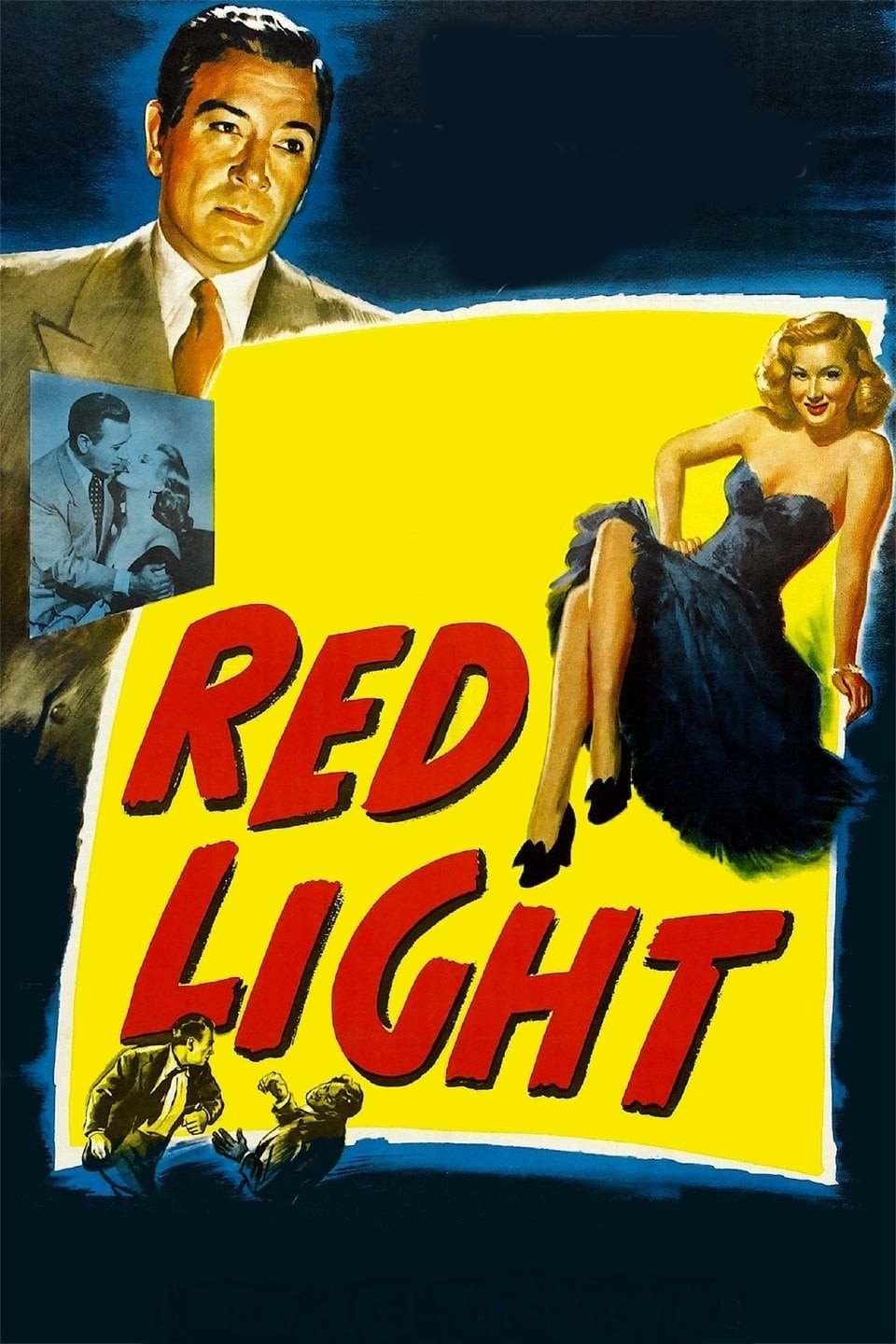
Red Light
Red Light
- Status: Released
- 30-09-1949
- Runtime: 83 min
- Score: 5.8
- Vote count: 22
Nick Cherney, in prison for embezzling from Torno Freight Co., sees a chance to get back at Johnny Torno through his young priest brother Jess. He pays fellow prisoner Rocky, who gets out a week before Nick, to murder Jess... who, dying, tells revenge-minded Johnny that he'd written a clue "in the Bible." Frustrated, Johnny obsessively searches for the missing Gideon Bible from Jess's hotel room.
Cast
Trailer
Review
Army Chaplain Slain! Red Light is directed by Roy Del Ruth and adapted to screenplay by George Callahan from the story This Guy Gideon written by Don Barry. It stars George Raft, Virginia Mayo, Raymond Burr, Harry Morgan and Gene Lockhart. Music is by Dimitri Tiomkin and cinematography by Bert Glennon. Something of an oddity, Red Light finds George Raft up to his neck in religion, revenge and a smouldering Virginia Mayo. After his brother, a chaplain, is murdered, he sets off to find the killer, whom can be identified by a message scrawled in a Gideon Bible. Find the Bible, find the killer. It is brought into the film noir sphere of things via Glennon’s photography, which kicks in at the hour mark and runs concurrent with the murky thematics in the narrative, Frisco a rain sodden place of sleaze. Other than that it plays more as a crime drama, albeit one with some decidedly spicy killings and another top villain turn from Raymond Burr. Tiomkin’s musical cues are strange and not always in sync with what is happening on screen, while the biblical hermeneutics and various plot contrivances irk rather than perk. See it for Burr and Glennon’s work, or if you fancy a weird blend of noir and ethical religio redemptions! 6/10
This is quite an intriguing crime noir, with George Raft as the owner of a trucking company out to avenge the murder of his brother - a priest. We know from the start who is responsible for the crime, so the film provides us with a front row seat as he sets about tracking down the culprit. It's quite a thoughtful story, a bit more sophisticated that your run of the mill vengeance tale. Raft plays his part well enough (he is a bit wooden at times), as do Virginia Mayo and Raymond Burr helping to build up quite a decent degree of tension, and when Raft ("Torno") does eventually discover what happened that night, he must reconcile the last wishes of his brother with his own visceral desire for revenge... The staging is a little too theatrical, Raft often paces from spot to spot as if he were following cues on stage, but the lighting and storm effects at the end contribute to the overall atmosphere of the drama, and it has a suitably striking conclusion.

